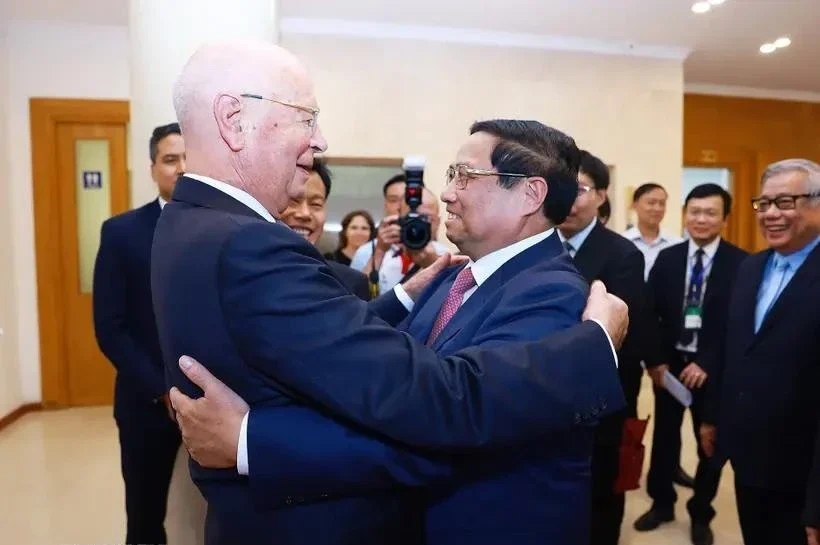WNAM REPORT: Prime Minister Pham Minh Chinh and Founder and Executive Chairman of the World Economic Forum (WEF) Prof. Klaus Schwab discussed new development trends, the shape of the “era of intelligence”, Vietnam’s development and prospects in this new era, and cooperation between the country and the forum during their meeting in Hanoi on October 7.
Chinh thanked Schwab for accepting the invitation to visit Vietnam and engaging in the talkshow that inspires and motivates Vietnamese youth at the Vietnam National University, Hanoi (VNU).
Schwab expressed his admiration for Vietnam’s significant changes and strong development. He commended the performance of the Vietnamese Government, especially in maintaining impressive economic growth in recent years despite difficulties facing the global economy.
He said that with its prospects and outstanding socio-economic achievements, Vietnam is likely to become a 2-trillion-USD economy by 2050.
The expert said that he is deeply impressed by the dynamism and rapid adoption of smart technology trends among Vietnamese youth, saying that this is one of Vietnam’s competitive advantages that should be further harnessed to achieve strategic development goals.
Chinh applauded Schwab’s large and strategic vision in founding the WEF in 1971, saying that over more than five decades, the forum has affirmed its leading role and reputation in the globe in not only initiating and capturing new global trends but also pioneering in proposing future solutions.
The two sides showed their pleasure at the increasingly substantive development of the ties between Vietnam and the WEF, noting that the recently inaugurated Centre for the Fourth Industrial Revolution (C4IR) in Ho Chi Minh City, one of the WEF’s 19 centres of this kind in the world, marks an important milestone in the relationship.
The Vietnamese leader called on the WEF to collaborate with Vietnam to make the centre one of the exemplary models within the WEF’s network, serving as a motivation for applying advanced technologies in key sectors of the economy.
He suggested Schwab and the WEF continue connecting Vietnam with global corporations and investment funds, and supporting the Southeast Asian nation in attracting high-quality investment inflows in priority areas such as high technology, energy transition, green economy, and sustainable infrastructure development. He called for the WEF’s assistance for Vietnam in developing a startup and innovation ecosystem, thus making it easier for young businesses to develop and integrate into the global value chain.


